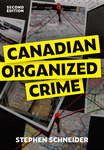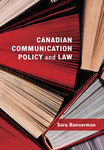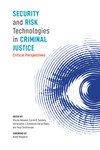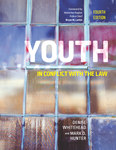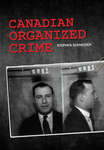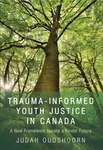We don’t actively support Internet Explorer
It appears that you are using Internet Explorer, which has been discontinued by Microsoft. Support has ended for versions older than 11, and as a result you may face security issues and other problems when using it.
We recommend upgrading to a newer browser such as Firefox, Google Chrome, or Edge for a much better experience across the web.
While this site may work with Explorer, we are not testing and verifying it, so you may run into some trouble or strange looking things.
Negotiation and Conflict Resolution in Criminal Practice
A Handbook
By Rebecca Jaremko Bromwich, Thomas Harrison
Overview
Lawyers, Crown counsels, district attorneys, and paralegals are often tasked with managing negotiation and conflict resolution in the courtroom; however, very little theory or literature surrounding this specialization exists. This handbook effectively closes these gaps and extensively discusses theories of negotiation and conflict resolution in criminal practice. Part one discusses communicating effectively and appropriately with clients, court staff, and opposing counsel by identifying and establishing cultural competence, rapport, and nonverbal cues. Part two identifies alternative processes in negotiation and conflict resolution including victim-offender mediation and retroactive justice, while part three covers career development in areas such as managing challenging clients and developing strategies for dealing with high-stress scenarios.
This ground-breaking resource is well suited to students in a wide variety of courses that specialize in negotiation and conflict resolution including criminal justice, law, paralegal, police studies, or criminology.
FEATURES
- includes learning objectives, chapter overviews, case studies, ethical dilemmas, and suggestions for further reading
Table of Contents
Introduction: The Context – Conflict Resolution and Negotiation in Criminal Law
Part I: Conflict Resolution and Negotiation in Traditional Criminal Law Processes
Chapter 1 - Negotiation: Principles, Theory and Approach
Chapter 2 - Conflict Resolution: Theory and Practice, Ethics, Strategies and Tactics in Criminal Law Negotiations
Chapter 3 – Negotiating Across Differences: Roles, Social Context, Culture and Process
Part II: Alternatives Approaches in Canadian Criminal Law
Chapter 4 - Alternative Dispute Resolution (ADR) and Diversion in Criminal Law
Chapter 5 - Restorative Justice: Theory, Practice, Standards, Guidance
Part III: Conflict Resolution and Career Development
Chapter 6 - Surviving and Thriving – Well-Being, Competence, Difficult People and Discrimination
Appendix – FLSC Model Code Excerpt on Lawyer ‘Competence’
Author Biographies


